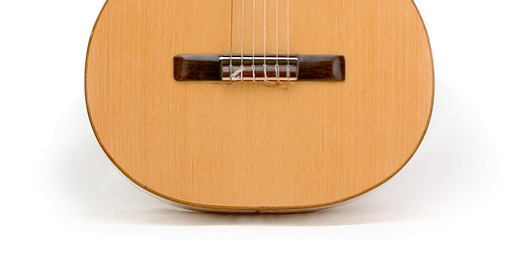Everyone should have something they love to do, even if they do not do it well.
Something wrong with our culture is we are taught the only reason to do something is to do it perfectly, or up to a standard set by other people. For example, when we learn musical instruments we’re taught to practice famous songs and to try and play them how the famous artists who wrote them would play it. There are two major problems with this:
It sets an incredibly high, competitive and unrealistic standard
It puts the focus on external comparison and not internal joy
As an example of this rule, I am a terrible guitar player. Yet I love to play guitar and I play something almost every day. My joy in playing the guitar is not tied to anyone else’s perception of my skills. Instead it is anchored in the fact that I love to do it. Period. I do not need any other reason to pick up a guitar than that. I bet I have more fun playing guitar than many far superior guitar players simply because I don’t have their expectations or their baggage.
I learned to play trumpet in school and I enjoyed it, but it was always tied to some external measure of value. I knew exactly how mediocre I was, since I was always playing in environments (e.g. school orchestras) where it was tied to grades and comparisons to other trumpet players. No one ever asked me what I loved most about playing it, or what my favorite things to play were. Picking up a guitar in mid-life came with freedom. The only expectations I had for it were my own.
It took me a long time to understand and then act on this rule. During my life I abandoned many hobbies or activities because I did not feel like I was good at them. Why do it if I’m bad at it? It’s embarrassing to be bad. This seemed obvious to me at the time. It just seemed like something everyone else believed too. People make fun of you if you are bad at something and who wants to be laughed at?
It was only when my friend Richard Stoakley, who curiously enough, is very good at most things I have ever seen him do, shared something with me. We were talking one day about playing chess, and playing the banjo, two hobbies he had, and he mentioned how his intention wasn’t anything other than having fun. He had separated his pleasure in an activity from any standard defined by others. And he thought it was wise to cultivate a hobby like this on purpose. It’s a test in a way: how much self-knowledge and self-love do you have? How do you know if the only things you do are accepted by others?
The ability to do something purely because you love it takes time to cultivate for most of us. We are indoctrinated to believe we must be productive, or above average, or fit into a system, and while this ethos might be unavoidable for professions or careers, it seeps into, and limits, how we see ourselves as people. To instead decide to focus on exploring your own desires, preferences and pleasures, is the pathway to self-discovery. It leads to a kind of fulfillment people who only do what they are good at never know.
And of course, the longer you do something you are bad at, simply because it gives you pleasure, the more likely it is that over time you’ll improve and discover new reasons to enjoy it.





This makes my heart sing. Learned Cornet at school but was never great. Picked up a bass guitar more recently, similar story. Neither bring great tunes but both are uplifting to play with!
Yes!
Mine is my garden. It is wild, weird, and wonderful. I like it when things grow for fun.
I do not care what anyone else thinks. It makes me happy.